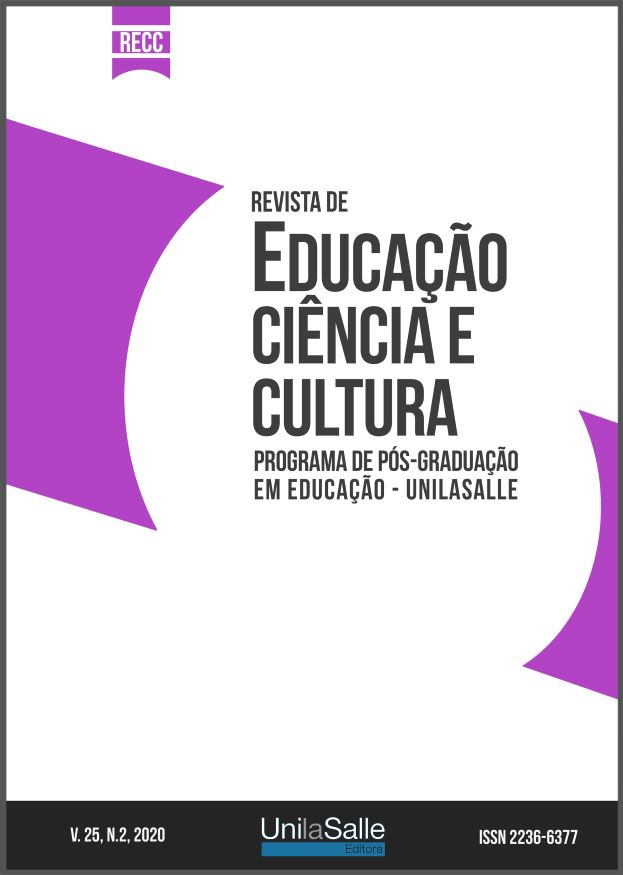Traçando relações entre etnoecologia e educação patrimonial para o ensino de ciências
DOI:
https://doi.org/10.18316/recc.v25i2.6476Palabras clave:
Educação e Cultura, Inventário Participativo, Interculturalidade, Povos Indígenas, Quilombos.Resumen
Localizada no município de Carnaubeira da Penha, em uma região semiárida de Pernambuco, o quilombo-indígena da Tiririca dos Crioulos articula as suas memórias em torno das narrativas que conformam a sua identidade. Nesse local, entre os anos de 2014 a 2018, ocorreu a ação de Educação Patrimonial “Do Buraco ao Mundo”, um processo de “pesquisa de si”, das referências que formam e da maneira como os próprios tiririqueiros e tiririqueiras, atuando como pesquisadores locais, querem se apresentar ao mundo. As considerações aqui efetuadas nos demonstram a possibilidade de diferentes formas para a contextualização dos processos de ensino-aprendizagem, indicando a potencialidade das estratégias de Educação Patrimonial, associadas a uma abordagem etnoecológica na mediação de conhecimentos, para o combate às práticas discriminatórias e deslegitimadoras de saberes em busca de uma educação na qual toma o território como condição de possibilidade de relacionamentos e (re)descobertas.
Descargas
Publicado
Número
Sección
Licencia
Autores que submetem seus manuscritos para serem publicados nesta revista concordam com os seguintes termos:
Autores mantém os direitos autorais e concedem à revista o direito de primeira publicação, com o trabalho simultaneamente licenciado sob a Licença Creative Commons Attribution que permite o compartilhamento do trabalho com reconhecimento da autoria e publicação inicial nesta revista.
- Em virtude dos artigos aparecerem nesta revista de acesso público, os artigos são de uso gratuito, com atribuições próprias, em aplicações educacionais e não-comerciais.
O Periódico Revista de Educação, Ciência e Cultura em http://www.revistas.unilasalle.edu.br/index.php/Educacao foi licenciada com uma Licença Creative Commons - Atribuição - Uso Não Comercial 3.0 Não Adaptada.


